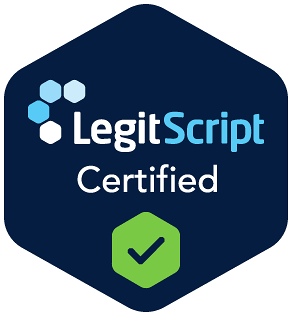An intervention is often the last resort for addicts, trying to get them into treatment. Unfortunately, an intervention can also backfire, as an addict may react violently to a group of family members or friends. The meeting should be done from a place of concern and compassion, rather than as an opportunity to vent about the addict’s behavior. Ultimately, the addiction is a disease, and no one should use the intervention as an excuse to punish the addict.
Treatment options for addictions
There are a variety of treatment options available for people who have developed an addiction. Regardless of the specific form, addiction is a chronic brain disorder characterized by harmful repetitive behaviors. Addicts feel compelled to perform addictive behavior to gain a short-term reward. Common forms of addiction include alcohol, gambling, food, and sex. Addicts display varying signs and symptoms and are often in denial about the disorder. There are effective treatments available for addiction, but they must be sought at the first sign of a problem.
Outpatient and residential treatment options are both viable options. The main differences between these two treatment options are that an outpatient treatment program will usually require the patients to stay in their home environment while they are undergoing the recovery process. This approach is a good fit for people who want to maintain a full schedule, and it will allow them to care for their families while in treatment. Inpatient programs are best for those who have a medical or mental health issue and need a longer stay. Outpatient treatment programs usually offer the same services as inpatient facilities, including pharmacological treatment.
In addition to addiction treatment, a person may choose to undergo counseling or behavioral therapy. Behavioral therapy helps an addict develop healthier attitudes and behaviors. It is recommended alongside medications in most cases. Cognitive behavioral therapy (CBT) is a common treatment for mental health conditions and has proven to be effective in treating addiction. However, the effectiveness of behavioral therapy is not fully understood. The most effective treatment plans are those that include a combination of both behavioral therapy and mental health care.
Addiction is a complex illness with many aspects. The first step in recovery is addressing the underlying causes of the problem. Identifying the causes and addressing the underlying symptoms of the disorder will prevent many relapses in the future. In addition, early intervention can reduce the suffering and enormous cost to society. In addition to drug treatment, the second step of recovery is developing a social support network, finding a job, building a supportive network, and rebuilding the life once again.
Cost of treatment
The total cost of an episode of treatment, also known as the “cost per episode”, is the total amount spent by clients from the first day of admission through the last day of treatment. This amount reflects direct out-of-pocket expenses and the cost per mile traveled. The total cost for an inpatient treatment program is the sum of all other costs, including program books, laboratory fees, state identification/driver’s license fees, and transportation time.
Depending on the duration of the program, inpatient rehab may cost anywhere from $6000 to $12,000 per month. The cost of a 30-day inpatient treatment program will be more than five thousand dollars. An outpatient program, which requires a client to return to the facility only once per week, is often less expensive than a six-week program. The cost of treatment will vary depending on the length of the program. For those who are addicted to alcohol or drugs, an outpatient rehab program may be less expensive than an inpatient program.
The cost of an inpatient rehab program varies from one facility to another. While inpatient rehab requires a patient to live at the facility for several days, an outpatient program allows a patient to live at home, commuting to the rehab center on a weekly basis. Because outpatient treatment plans offer more flexibility, it can be more affordable for patients with limited resources. Another consideration is the location of the treatment facility. Treatment programs in big cities can be more expensive than those in smaller communities.
The cost of inpatient and outpatient addiction treatment varies by state and provider. Outpatient methadone programs are the most expensive, while intensive inpatient and aftercare programs are the least expensive. Both have their disadvantages, but there are also benefits. By making these two factors as a baseline, addiction treatment providers will be more likely to adjust their fees and treatment hours accordingly. If the financial burden of treatment becomes clear, policymakers and treatment providers may consider reducing fees and increasing reimbursement rates.
An outpatient detox program will cost anywhere from $1,000 to $1,500. An inpatient detox program will likely be more expensive, with a cost of $5,000 to $20,000 per month. Depending on the substance abused, the cost of inpatient detox can range anywhere from a few hundred to thousands of dollars. The cost of an inpatient program varies from facility to facility, but generally a full-fledged 30-day program at a top rehab may cost more than $20,000.
Support network for addicts
Unlike traditional treatment programs, support groups offer a different kind of support to individuals battling addictions. A support group focuses on peer-to-peer support, and members share their experiences and celebrate victories. While family and friends can provide vital emotional and psychological support, they often do not understand the process of recovery. By participating in a support group, you will find that your fellow members can be a more informed source of information and offer advice that can help you cope with the challenges of recovery.
Peer-to-peer support groups can help you deal with the difficulties and shame of addiction, as well as the guilt that can accompany it. It is common for participants in support groups to share similar experiences and worries, and this can make you feel less alone. Furthermore, it can help you learn new ways of coping with stress and other challenges of addiction recovery. Despite the positives of peer-to-peer support, you should avoid groups that make specific promises or pressure you to buy products or services.
Peer-to-peer support groups are useful during the detoxification and stabilization phase of an addiction treatment program. They can also help you establish a new social network, which can decrease the risk of relapse. In addition, they can reduce the stress caused by negative conversations. Group members may also give you unsound medical advice. The competition among members can lead to relapses. Alcoholics Anonymous is one of the most well-known support groups around the world.
Joining a support group is one of the easiest ways to find a support network for addicts taking care of their addictions. Many of them have a website that lists local meetings. Alternatively, you can search for local meetings through the white pages. You can also contact your primary care physician or a mental health professional. They may have referrals for a support group. And if you do not know any professionals, you can try contacting a support group online.
Another option for support is a peer support group. This is a network of people in recovery who meet with each other in order to share experiences, validate one another, and ask questions. These groups also help members adhere to their post-rehab plans, including attending doctors’ appointments and continuing treatment. In AA or other 12-step groups, you are usually assigned a sponsor or a “buddy” who helps you navigate the recovery process. However, in online support groups, you can simply ask questions or make comments, with no specific person.
Medications used to treat addictions
Medications for addiction are often taken in combination with other therapies to reduce cravings and promote recovery. Many of these drugs are addictive, which is why they must be used with strict supervision and other support. Behavioral therapies are also an important part of the treatment process as they prevent an addict from transferring his addiction to the medications he is taking for addiction. However, some individuals may find that they are not able to get off these medications on their own.
Medications are sometimes prescribed by a therapist to help reduce the appeal of a substance of abuse. Medications like disulfiram or acamprosate are effective for many individuals who have trouble kicking the habit. There are several over-the-counter and prescription medications for nicotine addiction. Nicotine replacement products, such as patches, chewing gum, or lozenges, are available. Some are not recommended for long-term use, however, and the FDA warns against long-term use of these products. Medications for addiction undergo multiple clinical trials to prove their safety.
Medication for addiction is increasingly common and is now part of a larger treatment program. These drugs are particularly effective for treating opioid use disorder and can help an addict goes through the uncomfortable phases of detox and begin substance abuse treatment. Medications are not intended to replace behavioral therapy, but they can help addicts make it through the initial stages of detox and begin active participation in substance abuse treatment programs. The FDA has approved several medications for the treatment of addiction.
As with any disease, medications for addiction are not a cure for the condition. Instead, they are simply treatments for addiction symptoms. The medications are most effective in the early stages of recovery, when an addict is most prone to relapse. Combined with psychosocial and behavioral therapies, these medicines can create a stable environment for a drug-free life. So, before you rush to take any medication for addiction, consider what you should do first.
In addition to helping addicts overcome the physical symptoms of withdrawal, many addiction medications can also help the patient deal with their co-occurring disorders. For example, medications for depression may make stopping alcohol abuse easier. These medications are called antidepressants and they work by blocking the opioid receptors in the brain. They reduce cravings and discourage relapse. However, they also carry several unpleasant side effects. It is best to consult a healthcare provider for more information.






